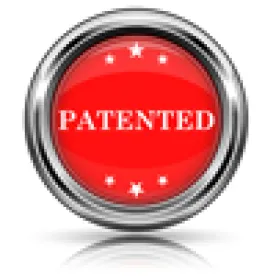In its Order, the Board authorized Petitioner to file a Motion to Strike questions and answers in the transcript of the deposition of Petitioner’s expert.
Petitioner requested a call with the Board during the deposition of its expert because it objected to the scope of questioning by Patent Owner’s counsel.
Petitioner sought an order prohibiting Patent Owner from asking questions concerning the operation of Petitioner’s products on the grounds that (1) the operation of Petitioner’s products is outside the scope of the inter partes review proceedings, (2) the expert had not opined on the operation of Petitioner’s products in these proceedings, and (3) secondary considerations of non-obviousness are not yet an issue in the proceedings.
Patent Owner argued that it was entitled to ask questions concerning the operation of Petitioner’s products because (1) it believes they embody the claims challenged in this proceeding; (2) the expert submitted in the co-pending litigation expert reports opining on Petitioner’s products; and (3) the operation of Petitioner’s products is relevant to the commercial success of Patent Owner’s patents, which Patent Owner intends to argue in its Patent Owner Response.
The Board reminded the parties that “[f]or cross-examination testimony, the scope of the examination is limited to the scope of the direct testimony”—which in this case is the expert’s declaration filed with the Petition. It also reminded them that the Testimony Guidelines appended to the Office Patent Trial Practice Guide apply to the proceeding. The Board then stated that it has authority to “impose an appropriate sanction for abuse of discovery,” including levying reasonable expenses and attorneys’ fees incurred by a party.
Turning to the instant dispute, the Board also explained that it is “extremely reluctant to broaden the scope of the instant proceedings significantly and delay the trial schedule by permitting discovery into the operation of Petitioner’s products.” It also explained that “[i]n order to be relevant to [its] analysis of commercial success, the discovery would require a trial within a trial on the issue of infringement, with associated evidence, arguments and (potentially) declarants” from both sides. Thus the Board previously denied Patent Owner’s request for authorization to file a Motion for Additional Discovery on the topic.
Despite its reluctance to permit discovery into this topic, the Board “declined to order Patent Owner’s counsel to cease its questioning with respect to the operation of Petitioner’s products” and instead authorized Petitioner to file a Motion to Strike that identifies questions and answers in the transcript of the deposition and explains why those questions are outside the proper scope of the proceeding. The Board then stated that, if it is “persuaded that Patent Owner’s counsel sought information outside the proper scope of the proceeding, sanctions may include striking the questions and answers that are not relevant, and ordering Patent Owner to pay the costs associated with the deposition.”
Apple Inc. v. Smartflash LLC, IPR2014-00102, IPR2014-00106, IPR2014-00108, IPR2014-00112
Paper 20: Order on Conduct of the Proceedings
Dated: December 12, 2014
Before: Jennifer S. Bisk, Rama G. Elluru, Jeremy M. Plenzler, and Matthew R. Clements
Written by: Clements
Patents: 8,118,221 B2; 8,033,458 B2; 8,061,598 B2; 7,942,317 B2



 />i
/>i


